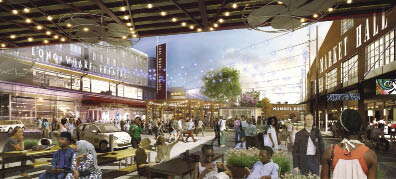
Processing Your Payment
Please do not leave this page until complete. This can take a few moments.
-
News
-
Editions
-
- Lists
-
Viewpoints
-
HBJ Events
-
Event Info
- 2024 Economic Outlook Webinar Presented by: NBT Bank
- Best Places to Work in Connecticut 2024
- Top 25 Women In Business Awards 2024
- Connecticut's Family Business Awards 2024
- What's Your Story? A Small Business Giveaway 2024 Presented By: Torrington Savings Bank
- 40 Under Forty Awards 2024
- C-Suite and Lifetime Achievement Awards 2024
- Connecticut's Health Care Heroes Awards 2024
-
-
Business Calendar
-
Custom Content
- News
-
Editions
View Digital Editions
Biweekly Issues
- April 29, 2024
- April 15, 2024
- April 1, 2024
- March 18, 2024
- March 4, 2024
- February 19, 2024
- February 5, 2024
- January 22, 2024
- January 8, 2024
- + More
Special Editions
- Lists
- Viewpoints
-
HBJ Events
Event Info
- View all Events
- 2024 Economic Outlook Webinar Presented by: NBT Bank
- Best Places to Work in Connecticut 2024
- Top 25 Women In Business Awards 2024
- Connecticut's Family Business Awards 2024
- What's Your Story? A Small Business Giveaway 2024 Presented By: Torrington Savings Bank
- 40 Under Forty Awards 2024
- C-Suite and Lifetime Achievement Awards 2024
- Connecticut's Health Care Heroes Awards 2024
Award Honorees
- Business Calendar
- Custom Content
Shifting Landscape: New Haven Food Terminal navigates future in changing Long Wharf district
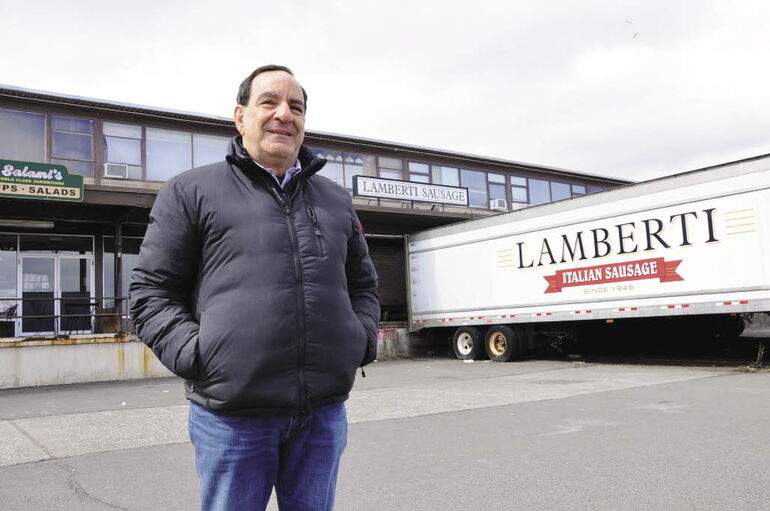 Photo | GARY LEWIS
Fran Lettiero, president of the New Haven Food Terminal, sees a bright future for the business hub.
Photo | GARY LEWIS
Fran Lettiero, president of the New Haven Food Terminal, sees a bright future for the business hub.
There’s a saying around the New Haven Food Terminal: If you took a picture of the dozen or so businesses there in 1961 and compared it to a modern-day photo, it would look pretty much the same.
Many of the immigrant families that founded the Food Terminal in 1961 still run operations there in 2022. The facility, which sprawls over 15.52 acres at 200-400 Sargent Dr., is owned by many of its tenants that have shares in the property. It still has an early 1960s look and some of its original retro signage.
What has changed, and continues to do so in potentially significant ways, are the faces and the Food Terminal’s neighborhood. The loss of a major tenant and potential nearby gentrification may challenge the future of this fixture of the region’s food infrastructure.
In a major shift for the Food Terminal, Long Wharf Theatre announced in February it would leave the space it has occupied there since 1965.
Other recent developments hint at a shift toward residential development and upscale uses in the terminal’s environs.
Just north of the Food Terminal, at 500 Sargent Drive, the brand-new Hotel Marcel is set to open later this month. Rates at the 165-room property range above $400 a night, and operator Hilton markets its upscale bona fides as a “net-zero, fully sustainable historic hotel celebrating modern design.”

Across the highway at 585 Long Wharf Drive, developer Fusco Corp. plans a residential tower overlooking New Haven Harbor at the site of the former Lenny & Joe’s Fish Tale restaurant. Just south of that, the modernist, glass-fronted Canal Dock Boathouse signals changing times on the waterfront.
With an eye on rising sea levels and intensifying storms, a major $160 million federal project was announced earlier this year to reinforce the Long Wharf area’s infrastructure, opening it up to further development.
“The city of New Haven is very happening, a lot is going on,” said Fran Lettiero, president of the Food Terminal board. “This strip will develop one way or the other. I don’t know how. I don’t know when. But I think the future is very positive for New Haven and very positive for this area.”
Family businesses evolve
Lettiero’s path to president of the joint venture illustrates the trends shaping the Food Terminal corporation — and New Haven as a whole.
His father founded what would become Advance Paper Co. in the lower State Street area of New Haven in the middle of the last century. The elder Lettiero’s firm was one of the 14 businesses that agreed to move to the Food Terminal site in 1961, when State Street was redeveloped as part of the era’s “urban renewal” efforts.
Those businesses, many run by immigrants, formed a corporation in which each firm had shares in the Food Terminal property and elected a board of directors to run things. Although many of the founders had Italian roots, Polish and Jewish immigrants also played a role in the early days, Lettiero said.
“It was a blend of immigrants,” Lettiero said. “I know that the perception is that it’s all Italian, but it’s a blend of people.”
In addition, Yale University owned a share of the Food Terminal and ran a major meat-cutting operation for its dining halls in four bays for 40 years.
The younger Lettiero took over from his dad at Advance Paper, but sold it to office supply giant W.B. Mason several years ago. Now he works for the larger company but maintains an office at the Food Terminal and continues his leadership role.
He’s one of the five shareholders who no longer run their own businesses at the property.
Jim Cohane also took over from one of the original founders and now runs Ideal Printing Co., which moved from Commerce Street to the Food Terminal in the 1960s.
Cohane said he values the camaraderie and convenience of the cluster.
“It’s an interesting place,” Cohane said. “Everybody gets along, everybody’s got their own business.”
Anchored by old-timers like Ideal Printing, Lamberti’s Italian Sausage and produce wholesaler Carbonella & DeSarbo, the terminal is also home to food manufacturers Carl’s Boned Chicken and Gracie’s Kitchens, along with Brazi’s Italian Restaurant.
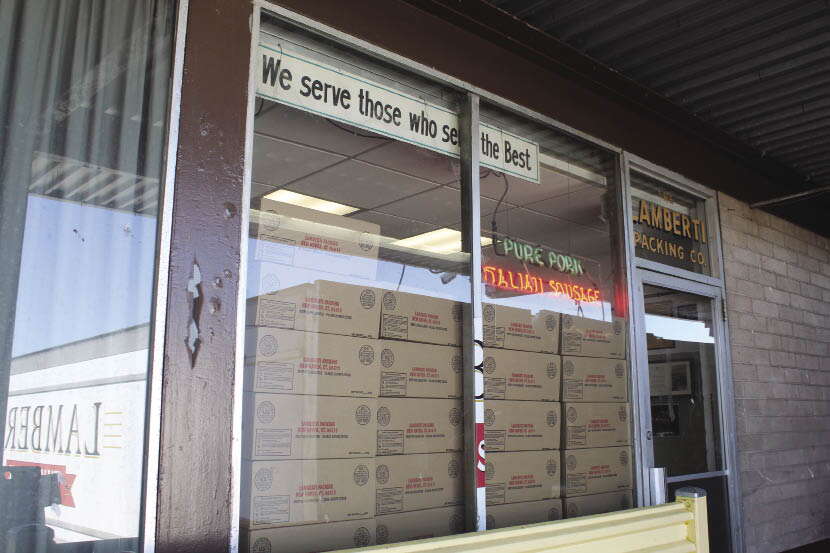
Now run by the descendants of its founder, Lamberti’s Food Terminal-made links are more popular than ever in regional markets due to the appeal of artisanal brands, said Jay Pallotti, a grandson and president and sales manager at the company.
Wholesalers include Mascari Brothers and Salvatore Sampieri, owner of The Italian Scallion, a fruit and produce business.
Newer tenants include Kawasaki Rail Car, which makes brakes for Metro-North and Amtrak trains in the former Yale meat-processing space.
The adjacent food-business hub off Brewery Street, which is not formally part of the Food Terminal, hosts the expanding Hummel Bros. hot dog company and a pie-making operation run by Lyman Orchards of Middlefield.
Many of the longtime founding businesses are now run by the sons and daughters of the founders.
“There’s very few first-generation owners still left here. And I think that’s what changes everything,” Lettiero.
To sell or not to sell
With New Haven property values rising, some Food Terminal owners have been thinking about selling for years.
“Some of us would like to sell and some of us would like to stay. Other than that, we’re pretty unified on what we do,” Lettiero said. With the changes in the area and potential of the site, he added, “this is not the highest and best use for the property.”
The Food Terminal faced near extinction in 2015, when a pivotal stake in the holding company went to auction after the bankruptcy of founder Standard Beef in the wake of an embezzlement. At the time, the city proposed developing the site into housing, according to the New Haven Register. A group including current tenants bought the shares and saved the Food Terminal.
The appraised value of the 15.52 acres of land the Food Terminal facility sits on rose nearly 64% from 2020 to 2021, from $3 million to nearly $5 million, according to city tax records. The total value of the property plus buildings and other improvements jumped from $10.3 million in 2020 to $12.6 million in 2021 — even with many of the structures showing their age.
A selling price beyond the appraised value isn’t hard to imagine, but many Food Terminal operators can’t afford to move, Lettiero said. What complicates any move is the fact that many tenants have spaces specially modified at great expense to meet the regulations of the U.S. Department of Agriculture and other food-related agencies. Reproducing those changes would be prohibitively costly for small businesses.
So, for the time being, the Food Terminal property is off the market and leases are being renewed for five to 10 years.
“We’re not for sale. But we always listen to people who make offers,” Lettiero said.
Lease negotiations had been ongoing for months with Long Wharf Theatre, and the nonprofit was a welcome tenant, Lettiero said. He added that he doesn’t expect to have trouble finding new renters.
Fitting into the future
The regionally acclaimed theater had played a key role in plans for the Food Terminal set out by the Long Wharf Responsible Growth Plan, a 2019 revisioning of the area as a walkable, mixed-use district.
Part of a proposed “Market District,” the terminal was recast as an open-air food court, with benches and pedestrian areas occupying what is now an expanse of parking and loading areas.
“Part of the Long Wharf Responsible Growth plan is to reimagine the terminal model as the destination that supports the food industry, but also the broader Long Wharf district,” said New Haven Economic Development Administrator Michael Piscitelli.
Updating the Food Terminal’s worn exteriors and dated infrastructure is a must, he added.
“Facilities are in a very deteriorating condition,” Piscitelli said.
Despite the challenges of an aging campus, the Food Terminal still attracts ongoing interest from food producers and distributors from across the region due to its location at the junction of Interstates 91 and 95, said Carlos Eyzaguirre, New Haven’s deputy economic development administrator and point person on Long Wharf.
With at least 600 jobs at the site currently, the Food Terminal is an important economic hub for the city, Eyzaguirre added.
For Fran Lettiero and many others, the Terminal is about more than its economic potential, past and present.
“It’s been my whole life, it was my dad’s whole life,” Lettiero said. “I am very positive about the terminal. My dad’s investment in 1961 is what I’m protecting here. And I just want to see the best for the property and the best for my partners here.”

2022 Giving Guide
This special edition informs and connects businesses with nonprofit organizations that are aligned with what they care about. Each nonprofit profile provides a crisp snapshot of the organization’s mission, goals, area of service, giving and volunteer opportunities and board leadership.
Learn more
Subscribe
Hartford Business Journal provides the top coverage of news, trends, data, politics and personalities of the area’s business community. Get the news and information you need from the award-winning writers at HBJ. Don’t miss out - subscribe today.
Subscribe
2024 Book of Lists
Delivering Vital Marketplace Content and Context to Senior Decision Makers Throughout Greater Hartford and the State ... All Year Long!
Read Here-
2022 Giving Guide
This special edition informs and connects businesses with nonprofit organizations that are aligned with what they care about. Each nonprofit profile provides a crisp snapshot of the organization’s mission, goals, area of service, giving and volunteer opportunities and board leadership.
-
Subscribe
Hartford Business Journal provides the top coverage of news, trends, data, politics and personalities of the area’s business community. Get the news and information you need from the award-winning writers at HBJ. Don’t miss out - subscribe today.
-
2024 Book of Lists
Delivering Vital Marketplace Content and Context to Senior Decision Makers Throughout Greater Hartford and the State ... All Year Long!
ABOUT
ADVERTISE
NEW ENGLAND BUSINESS MEDIA SITES
No articles left
Get access now
In order to use this feature, we need some information from you. You can also login or register for a free account.
By clicking submit you are agreeing to our cookie usage and Privacy Policy
Already have an account? Login
Already have an account? Login
Want to create an account? Register
Get access now
In order to use this feature, we need some information from you. You can also login or register for a free account.
By clicking submit you are agreeing to our cookie usage and Privacy Policy
Already have an account? Login
Already have an account? Login
Want to create an account? Register

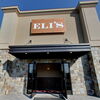

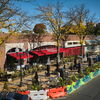
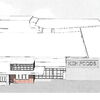

0 Comments